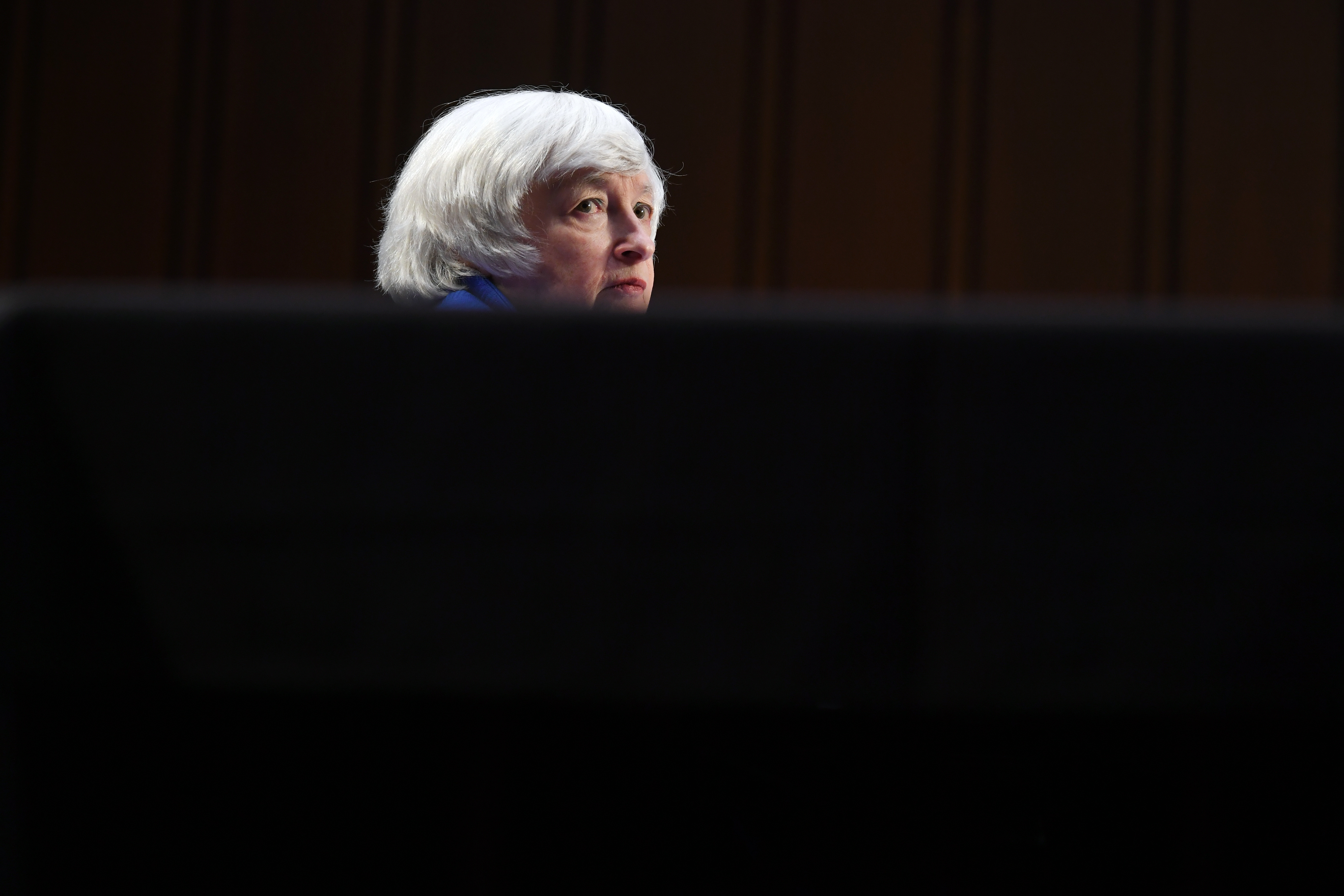The daily business briefing: September 29, 2021
Yellen warns government has just weeks to avert debt default, oil prices touch $80 a barrel for 1st time in 3 years, and more


- 1. Yellen warns government running out of options to avoid debt default
- 2. Oil prices touch $80 a barrel for 1st time in 3 years
- 3. U.K. readies troops to help deliver fuel to gas stations
- 4. United to start process of laying off unvaccinated workers
- 5. Stock futures rise after worst day since March
A free daily email with the biggest news stories of the day – and the best features from TheWeek.com
You are now subscribed
Your newsletter sign-up was successful
1. Yellen warns government running out of options to avoid debt default
Treasury Secretary Janet Yellen on Tuesday warned lawmakers that the federal government would run out of ways to avoid a catastrophic federal-debt default by Oct. 18 unless Congress raises the debt ceiling. Economists say a default would send financial markets plunging, trigger a recession, and delay payments to millions of Americans. Yellen also warned that the deadline could come earlier depending on "unavoidable" shifts in the federal government's cash flows. "This uncertainty underscores the critical importance of not waiting to raise or suspend the debt limit. The full faith and credit of the United States should not be put at risk," Yellen wrote. Senate Republicans have said they would not provide any votes to raise the debt ceiling.
2. Oil prices touch $80 a barrel for 1st time in 3 years
International benchmark Brent crude oil briefly reached $80 a barrel on Tuesday for the first time in nearly three years. Oil prices have risen by roughly 25 percent since last month as concerns of a looming supply crunch mounted. Brent crude touched $80.70 a barrel before dropping to $79.09. U.S. benchmark West Texas Intermediate also neared a three-year high. Increased natural gas prices also are pushing oil prices higher, as some industrial users try to keep costs down by switching from natural gas to other fuels. This may be the first time that "gas impacts oil and not the other way around," said Carlos Torres Diaz, head of gas and power at consulting firm Rystad Energy. Outages caused by Hurricane Ida also had an impact.
The Week
Escape your echo chamber. Get the facts behind the news, plus analysis from multiple perspectives.

Sign up for The Week's Free Newsletters
From our morning news briefing to a weekly Good News Newsletter, get the best of The Week delivered directly to your inbox.
From our morning news briefing to a weekly Good News Newsletter, get the best of The Week delivered directly to your inbox.
3. U.K. readies troops to help deliver fuel to gas stations
Prime Minister Boris Johnson on Tuesday placed British army troops "on standby" in case they are needed to drive trucks to deliver fuel to gas stations running low due to panic buying and labor shortages. The United States and other countries have faced a labor crunch caused by the coronavirus pandemic, but in the United Kingdom the problem has been even worse, because the country's departure from the European Union has cut off the free movement of workers from Eastern Europe. Those workers used to accept low-paid jobs many Britons avoid, including positions in nursing homes and cargo trucks. British officials said the country has adequate fuel supplies, but is struggling to get it from ports and refineries to the pump.
4. United to start process of laying off unvaccinated workers
United Airlines announced Tuesday that it would start laying off about 600 employees who refused to comply with its coronavirus vaccine mandate. The airline said 99 percent of its 67,000 workers, excluding less than 3 percent who sought religious or medical exemptions, met a Monday deadline to provide proof of vaccination against COVID-19. United said it would give the remaining employees — less than 1 percent of the non-exempted workforce — one more chance to get the shots before the separation process is complete. United said it had seen an increase in job applications after unveiling the vaccine mandate. "Everyone is safer when everyone is vaccinated, and vaccine requirements work," United Airlines CEO Scott Kirby and President Brett Hart wrote in a memo to employees.
A free daily email with the biggest news stories of the day – and the best features from TheWeek.com
5. Stock futures rise after worst day since March
U.S. stock index futures rose early Wednesday after the Nasdaq's worst day since March. Futures tied to the Dow Jones Industrial Average and the S&P 500 were up by about 0.6 percent and 0.8 percent, respectively, several hours before the opening bell. Futures for the tech-heavy Nasdaq gained 1 percent. All three of the main U.S. averages plummeted on Tuesday as surging bond yields dragged down stocks. The Dow and the S&P 500 fell by 1.6 percent and 2 percent, respectively. The Nasdaq dropped by 2.8 percent. Tech stocks, which are hit particularly hard by rising bond yields because they reduce the value of future earnings, led the declines. Facebook, Microsoft, and Google-parent Alphabet all fell by more than 3 percent. Amazon lost more than 2 percent.
Harold Maass is a contributing editor at The Week. He has been writing for The Week since the 2001 debut of the U.S. print edition and served as editor of TheWeek.com when it launched in 2008. Harold started his career as a newspaper reporter in South Florida and Haiti. He has previously worked for a variety of news outlets, including The Miami Herald, ABC News and Fox News, and for several years wrote a daily roundup of financial news for The Week and Yahoo Finance.
